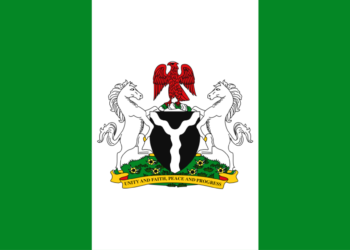The Nigerian Economic Summit Group (NESG) has criticized the 2025 federal budget as insufficient to address Nigeria’s urgent social and infrastructure needs, according to its report, “2025 FGN Budget Analysis: Can The Budget Deliver a Major Economic Boost.”
The NESG highlighted that public investment is often treated as an afterthought, allocated only residual funds after recurrent spending, which disrupts long-term infrastructure and social development initiatives. From 2015 to 2024, Nigeria’s government spending averaged just 13.1% of GDP, significantly below the global average of 30% and the Sub-Saharan African average of 21.2%.
The 2025 budget allocates N27.96 trillion (50.8%) to recurrent expenditure, including debt servicing, while capital expenditure for critical infrastructure and social programs receives 49.2% of the N54.99 trillion 2025 budget.
The NESG noted that this persistent underinvestment hinders human capital development, infrastructure growth, and economic diversification. The group also criticized Nigeria’s public finance management framework as inefficient, failing to stabilize the economy or improve citizens’ welfare, emphasizing that effective resource allocation is more critical than the budget’s size.
Despite the budget’s historic size and a focus on boosting demand, output growth, and economic development through higher capital spending, challenges remain.
The NESG pointed out ongoing issues from the past decade, including inefficient public spending, poor revenue generation, and rising debt servicing costs, which continue to impede economic progress. The budget prioritizes infrastructure, debt repayment, and funding for new regional development commissions, but these longstanding issues undermine its effectiveness.
Nigeria’s per capita public spending is alarmingly low at N239,087 (US$159.4) annually for a population of 230 million, compared to South Africa’s US$1,957 and an average of US$800 in some other countries.
Allocations to health (N2.38 trillion, US$1.49 billion) and education (N2.59 trillion, US$1.62 billion) are particularly inadequate, raising concerns about long-term impacts on economic competitiveness, human capital, and poverty reduction.
The NESG stressed that these budgetary shortcomings severely limit Nigeria’s ability to meet pressing social and infrastructure demands.
WHAT YOU SHOULD KNOW
The NESG’s analysis of Nigeria’s 2025 budget reveals deep-rooted challenges in public finance management, resource allocation, and sectoral prioritization.
Addressing these issues requires bold reforms in revenue generation, public spending efficiency, and sectoral investment, alongside a strategic approach to debt management and private sector engagement.
ALSO READ TOP STORIES FROM VERILY NEWS


















